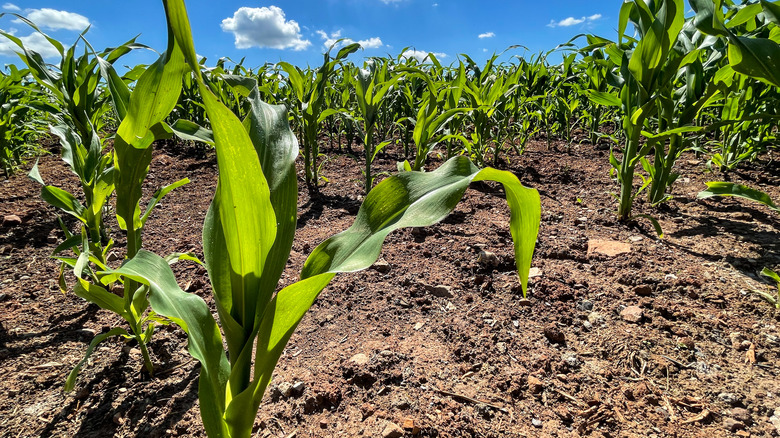A UN Leader Is Calling For 'Extraordinary' Measures To Fix The Global Food Crisis
Although the heartbreaking images of starving children might have escaped the memories, it does not mean that the global food crisis has disappeared. Ahead of an upcoming event in Davios, Ifad.org reported that Alvaro Lario, President of the UN's International Fund for Agricultural Development (IFAD) used bold language to address a global issue that he believes is dire and supports action to address failing food systems.
According to the Economic Research Service of the USDA, 1.3 billion people across the globe are said to be food insecure. The 10% increase from 2021 is said to stem from rising commodity prices, in particular higher costs of corn, wheat, and sorghum. Specifically, the food issue appears to have a great impact on Asia, Sub-Saharan Africa, Latin America, and the Caribbean. Euractiv reported that the European Commission earmarked multimillion-dollar funding to address food aid and nutrition. These funds seek to address those communities on the "verge of starvation" as well as address scaling up climate adaptation measures. The World Food Programme listed several of these areas as "hunger hotspots" in 2022 where action should address both the lives and livelihoods of those in need. As food insecurity grows, some political leaders have become more vocal hoping to spark quicker and broader action on the current food crisis.
How does the UN seek to address acute food insecurity?
While rising food costs impact weekly grocery shopping, acute food insecurity is a global issue. Although the UN General Assembly adopted a Global Food Crisis resolution in 2022, that commitment to open trade channels and free-flowing supply chains addressed one part of the conversation. Currently, some leaders are seeking to address a long-term solution.
In a statement, Alvaro Lario, President of the UN's International Fund for Agricultural Development (IFAD) asserted that a bold investment and strong commitment are required to combat the acute food insecurity causing the global food crisis. While he believes that massive economic funding is required, his concept includes long-term investment in building infrastructure. Lario asserts that growth in localized agricultural segments can produce long-term solutions to the far-reaching crisis. By supporting small-scale farming, the concept is to avert global events impacting food costs at a local level.
In 2021, the Director-General of the Food and Agriculture Organization of the UN (FAO), Qu Dongyu was quoted in a UN statement on the food crisis that he believes, "food and livelihood assistance must be given in tandem." That statement seems to support Lario's commentary that infrastructure should be part of the food crisis solution. Given that 2022 The State of Food Security and Nutrition in the World (SOFI) stated that 828 million people were impacted by hunger in 2021, world leaders are vocalizing the importance of influencing a larger change.

